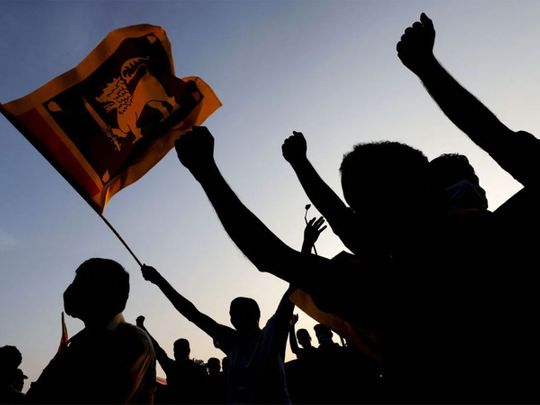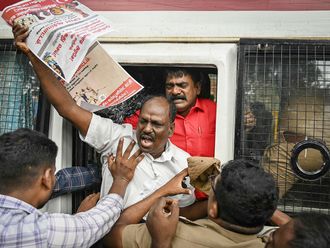
Colombo: Sri Lanka’s rupee, which became the world’s best performing currency this year amid hopes of an International Monetary Fund bailout, may resume declines and lose a fifth of its value against the dollar by end-2023, according to Fitch Solutions.
“We are optimistic that Sri Lanka will be able to secure an IMF board approval by early 2Q-2023,” said Seah Wang Ting, country risk analyst at Fitch Solutions. Nevertheless, there’s potential for disruptions after the initial board approval as authorities may find it challenging to stay on track with the IMF program amid a weakening economy and a local election likely on the horizon, he said.
Fitch maintained its forecast for the rupee to weaken to a record low of 390 per dollar by year-end. The rupee advanced 3 per cent to 317.7 per dollar on Wednesday, taking its annual gains to over 15 per cent. That’s after the IMF said it plans to decide on a $2.9 billion bailout for Sri Lanka following China’s assurance that it will support the nation’s debt restructuring.
Sri Lanka has increased taxes, cut energy subsidies and loosened its grip on the currency to secure the IMF loan. The central bank recently lifted borrowing costs further to ensure that inflation which has slowed from nearly 70 per cent doesn’t flare up.
“Sri Lanka still has significant external debt repayment needs and will need to build up its foreign reserve buffer over the coming months, which would put downside pressure on the exchange rate,” Fitch said in a report Wednesday.
Sri Lankan President Ranil Wickremesinghe said on Tuesday the country needs to repay about $6 billion-$7 billion foreign loans on average each year until 2029.
The Sri Lankan rupee may also be pressured by tightening global monetary conditions, according to Fitch. Federal Reserve Chair Jerome Powell told the Senate Banking Committee on Tuesday that the ultimate level of interest rates is likely to be higher than previously anticipated.












